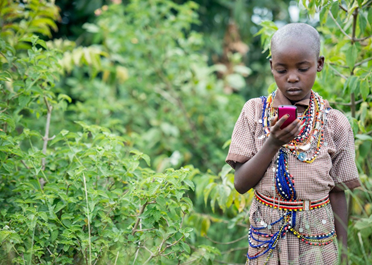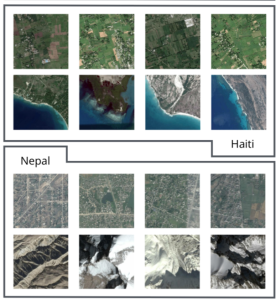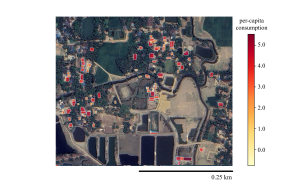Adaptive Social Protection
Project description
Accurate and up-to-date information on the living conditions of households is indispensable for the design of effective and timely policies and interventions. Reliable data enable policymakers to design targeted social assistance programs, monitor economic progress, respond rapidly to crises, and measure the impact of policies and programs. However, many low- and middle-income countries (LMICs) lack recent data on household living conditions (Jerven 2013).
These data gaps can have severe consequences. Barca and Hebbar (2020) found that social registries — crucial for identifying and targeting beneficiaries of social assistance programs — are typically updated only every five to eight years in LMICs. This infrequency impairs policymakers’ ability to respond promptly to evolving economic conditions and shocks (Encinas et al. 2025). These persistent data gaps underscore the need for alternative, more cost-effective approaches to measuring household welfare, and for monitoring the socioeconomic conditions of local and national populations.
In a set of related projects, the Global Opportunity Lab is working with governments and humanitarian organizations to design, implement, and evaluation Adaptive Social Protection systems, which leverage non-traditional sources of digital data to monitor living conditions in real-time. Recent and ongoing collaborations include: work with the Government of Togo to target emergency cash transfers during the COVID-19 pandemic; a collaboration with the World Food Programme in Haiti to deliver support to vulnerable households affected by climate shocks and violence; and a partnership with GiveDirectly in several countries to design “anticipatory action” cash transfer programs that provide aid to vulnerable households as early as possible.
In the news
Related Publications
- Aiken, E, Bellue, S, Blumenstock, JE, Karlan, D, and Udry, C (2025). Estimating impacts with surveys vs. digital traces: Evidence from randomized cash transfers in Togo, Journal of Development Economics, 175:103477
- Blumenstock, JE, Cabanillas, OB, Lybbert, T, and Putman, D (2025). Probing the Limits of Mobile Phone Metadata for Poverty Prediction and Impact Evaluation, Journal of Development Economics, 174:103462
- Aiken, E, Bellue, S, Karlan, D, Udry, C, and Blumenstock, JE (2022). Machine Learning and Phone Data Can Improve the Targeting of Humanitarian Aid, Nature, 603: 864-870 [pdf]
- Chi, G, Fang, S, and Blumenstock, JE (2022). Microestimates of Wealth and Poverty for all Low- and Middle-Income Countries, Proceedings of the National Academy of Sciences, 119(3), 1-11 [pdf]
- Smythe, I, and Blumenstock, JE (2022). Geographic Micro-Targeting of Social Assistance with High-Resolution Poverty Maps, Proceedings of the National Academy of Sciences, 119(32), 1-10 [pdf]
- Blumenstock, JE, Cadamuro, G, On, R (2015). Predicting Poverty and Wealth from Mobile Phone Metadata, Science, 350(6264), 1073-1076 [pdf]
Status: ACTIVE



















